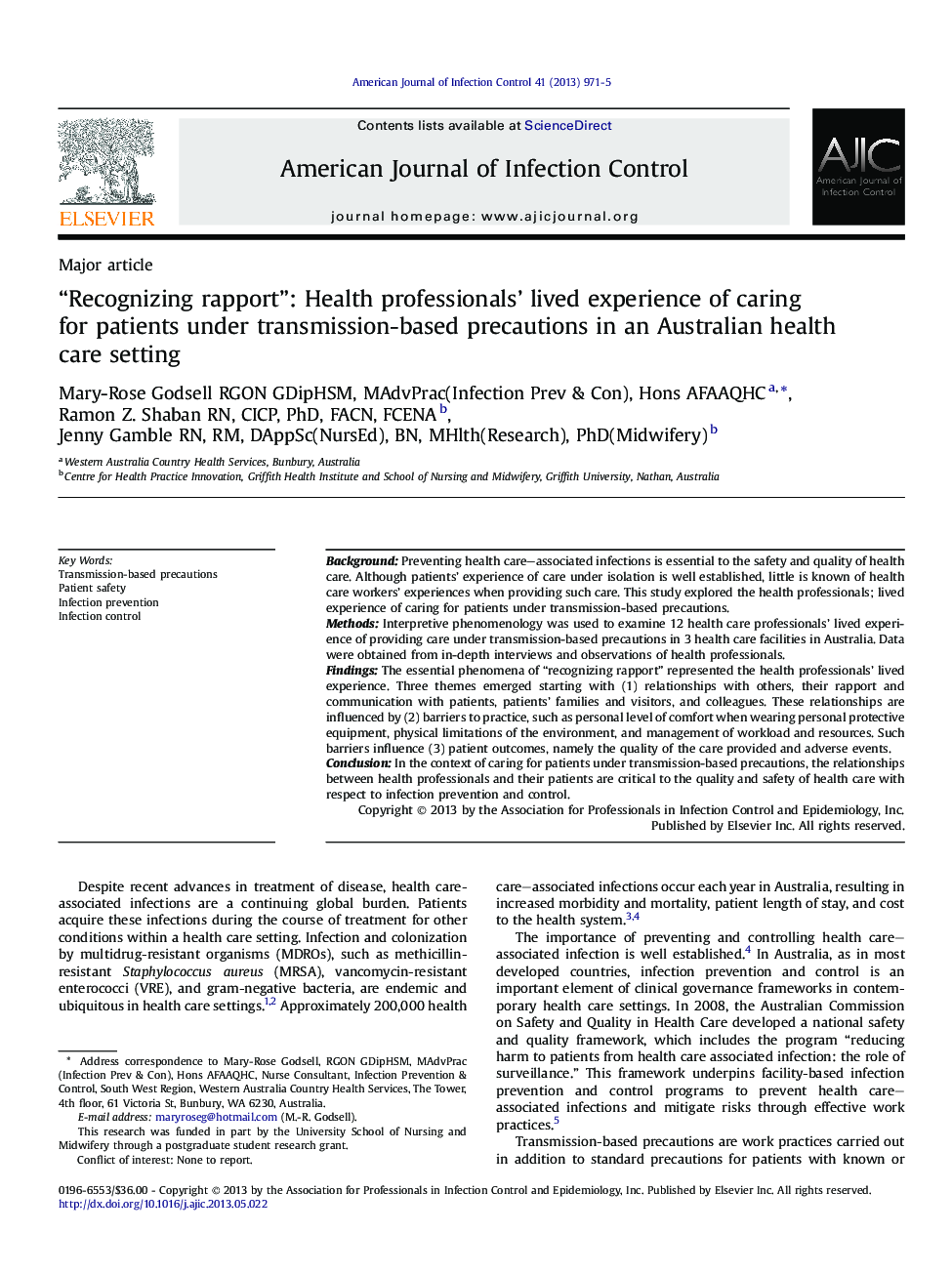| Article ID | Journal | Published Year | Pages | File Type |
|---|---|---|---|---|
| 2639537 | American Journal of Infection Control | 2013 | 5 Pages |
BackgroundPreventing health care–associated infections is essential to the safety and quality of health care. Although patients’ experience of care under isolation is well established, little is known of health care workers' experiences when providing such care. This study explored the health professionals; lived experience of caring for patients under transmission-based precautions.MethodsInterpretive phenomenology was used to examine 12 health care professionals' lived experience of providing care under transmission-based precautions in 3 health care facilities in Australia. Data were obtained from in-depth interviews and observations of health professionals.FindingsThe essential phenomena of “recognizing rapport” represented the health professionals' lived experience. Three themes emerged starting with (1) relationships with others, their rapport and communication with patients, patients' families and visitors, and colleagues. These relationships are influenced by (2) barriers to practice, such as personal level of comfort when wearing personal protective equipment, physical limitations of the environment, and management of workload and resources. Such barriers influence (3) patient outcomes, namely the quality of the care provided and adverse events.ConclusionIn the context of caring for patients under transmission-based precautions, the relationships between health professionals and their patients are critical to the quality and safety of health care with respect to infection prevention and control.
